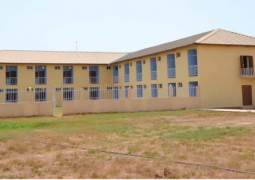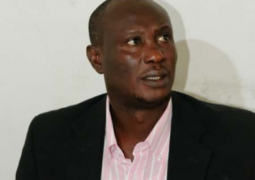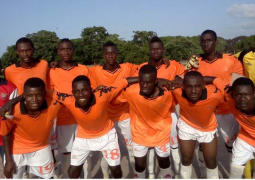When the six journalists were imprisoned about two weeks ago, it was feared that the unprecedented act would spell a dead end for journalism in The Gambia. It was widely speculated at the time that the Gambia Press Union, The Point and Foroyaa were in "disarray". And many journalists were pressured by families and friends to quit the profession, as they considered it too risky. All of these concerns are understandable.
There is no doubt that journalism is a risky profession. It has variously been likened to the military, a minefield or "the business of making enemies". It is a business of making enemies because people do not want their dirty linens to be washed in public. So those who have skeletons in their cupboards are always uncomfortable with the presence of journalists. They therefore do all that they can to silence them; even killing is not ruled out as an option. But journalism lives on.
It lives on because it is an integral part of living; people need to be informed of happenings around them; people need to know what is happening in high places; people need to voice their opinions on issues that affect their lives; and people need information to take decisions that affect their lives and those of their children. When they are denied such a platform, they grope in the dark and wallow in ignorance.
In doing our job we are guided by ethical standards - fairness, accuracy, balance. And we also give the right of reply to anybody who is aggrieved by our publications - alongside our professional obligation to apologize whenever we err. The right of right is a canon of journalism practice because communication is not a one-way traffic; it is two-way. But what all people of conscience are against is the resort to strange and contrived means to get even with journalists.
The smear that is always hurled at journalists working in The Gambia is that they get into trouble because they are not qualified. Specifically, it is said that journalism in the country is "weak" because there is no school of journalism around. The logic is that when there is a school of journalism, all will be well. There are three things to be noted here: One, journalism is an open profession that allows people from diverse backgrounds into its fold. The primary consideration for a career in journalism is a demonstrated flair for writing; it is often said that a degree in journalism does not make one a good journalist. Two, in the advanced world when journalism is well established, there are still cases of defamation, slander, libel, or targeted killings.
Despite the challenges facing journalism practice in The Gambia - arson attacks, disappearance, imprisonment, murder, - journalists in the country are still soldiering on. They do so because they know that no profession is risk-free. They know that people still fly, despite plane crashes; they know that people still enter vehicles, despite road accidents; and they know that people have not stopped building or living in houses, though houses collapse now and again. Though risk goes particularly with our territory, we are standing firm together through thick and thin.
"I disapprove of what you say, but I will defend to the death your right to say it."
Voltaire
Read Other Articles In Article (Archive)




